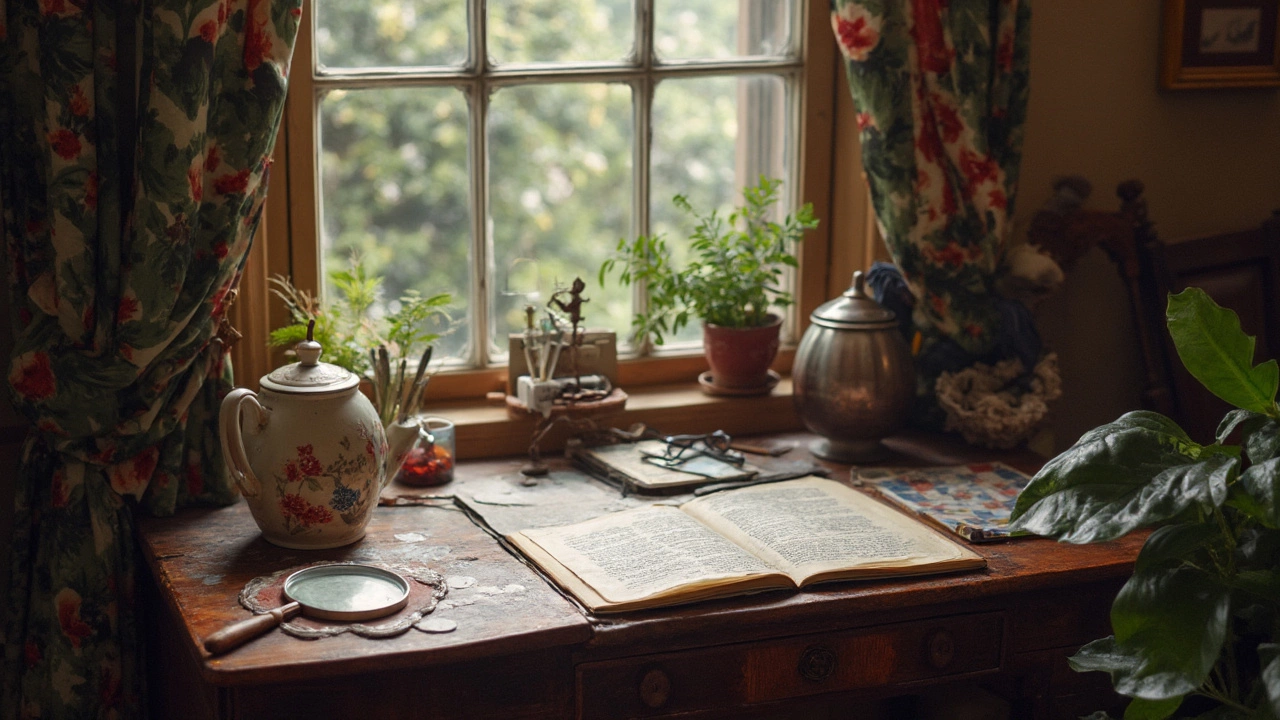Plural of Wife: Spelling Out the Details

So you're wondering what the plural of 'wife' is. Surprisingly enough, it's not as straightforward as just adding an 's'. When you have more than one wife, you spell it 'wives'. English is full of these little quirks that can trip up even the most seasoned speakers.
Think about it: English has a way of swapping in a 'v' for the 'f' and tacking on 'es' instead of a basic 's'. It's a bit like how we change 'leaf' to 'leaves' or 'knife' to 'knives'. Why? Well, these words have roots in older languages, and the quirks have just stuck around.
- Understanding English Plurals
- Spelling Tips for Tricky Words
- Why English Is Full of Exceptions
- Learning Language through Everyday Items
- Fun Facts about Language History
Understanding English Plurals
Getting your head around English plurals can feel like trying to solve a puzzle sometimes. You've got your basic rule: just slap an 's' on the end of most nouns and you're good to go. Easy, right? That works swimmingly for words like 'car' becoming 'cars' and 'house' turning into 'houses'.
But hold up! English loves to throw curveballs. Enter words like 'wife', where the plural is 'wives'. It's a quirk that stems from its Germanic roots. Many of these words morph from an 'f' to a 'v' before adding 'es', creating a whole separate group of plural forms.
You might be curious about how to handle other tricky plurals. Here are a few tips to keep in mind:
- Words ending in 'f' or 'fe': Swap the 'f' for a 'v' and add 'es' (like 'knife' to 'knives').
- Irregulars: Some words change completely, like 'man' to 'men' or 'foot' to 'feet'. No shortcuts here, just memorization.
- Same Singular and Plural Form: Some words, such as 'sheep' or 'fish', stay the same whether you're talking about one or many.
While learning these patterns, remember the way English picks up bits and pieces from other languages. This explains the exceptions, where even native speakers might stumble.
If you're feeling up to a deep dive, why not create flashcards? Test yourself with lists of words and their plurals. It’s about finding patterns that stick in your memory, kind of like playing a brainy game.
Spelling Tips for Tricky Words
English plurals like 'wives' can be head-scratchers, right? Words ending in 'f' or 'fe' are notorious for their twists, and let's face it, getting them right is a total power move. So let's break it down with some tips to make these plural puzzles a breeze.
First off, get friendly with the words that love to drop the 'f' and take a 'v'. Common culprits include: wife > wives, knife > knives, leaf > leaves. Spotting these can make you a whiz at pluralizing.
Need a pro tip? When facing a word with 'f' or 'fe', try testing both keeping and changing it. If it seems like it's following a vibe similar to 'wives', chance are it switches to 'v'. Handy trick, isn't it?
Next, make your own cheat sheet. Jot down these twisty words, kinda like how you'd scribble down a shopping list. Keeping a list is super helpful, especially when you're juggling complicated words on a daily basis.
- Plural of wife: wives
- Knife: knives
- Leaf: leaves
- Life: lives
For those who geek out over stats, it’s interesting to note that among English nouns ending in 'f' or 'fe', over 80% stick with a simple 's'. But just like that rebellious 20%, knowing exceptions gives you a clear edge.
Finally, remember it's not about memorizing every weird word. It's about spotting patterns. Once you get the hang of these sneaky little rules, you'll find that those tricky words aren't all that scary.

Why English Is Full of Exceptions
Ever wonder why English sometimes seems like an overgrown garden of rules? One big reason is its mixed heritage. English pulls from a rich tapestry of languages, like Latin, Greek, German, and French. It's like a linguistic melting pot, grabbing bits and bobs from whichever language it fancied throughout history.
Back in the day, when the Normans invaded England in 1066, they brought their own language, which heavily influenced English. So did the Saxons and the Vikings, with their Germanic influences. Over time, we ended up with this quirky language full of oddities.
Take plurals, for instance. Why 'wives' instead of 'wifes'? These forms come from Old English, where words needed to fit different grammatical cases. The 'f' to 'v' switch and the 'es' ending were part of that change. This pattern hangs around in modern English, giving us some of those classic tricky words.
Because these influences came from so many languages, English developed what's called "exceptions to the rules." It's like pulling fashion from random decades, and ending up with a wardrobe full of mismatched outfits that strangely work together.
| Language | Influence |
|---|---|
| Norman French | Legal terms, government language |
| Old Norse | Everyday words like "sky" and "egg" |
| Latin | Scientific and academic vocabulary |
You might curse these exceptions when learning English grammar, but they're kind of what make the language so interesting. It's a jigsaw puzzle of sounds and rules stitched together over centuries. Not to mention, they help keep our brains sharp! Remember, these exceptions pop up in spelling as well, so spotting them in real life can actually be kind of fun.
Learning Language through Everyday Items
Staring at a textbook isn't the only way to learn a language, especially when English seems full of surprises. You can actually pick up language skills using the stuff you have lying around at home. It might sound a bit odd, but it absolutely works!
Let's use the kitchen as an example. It's loaded with great vocab opportunities and can teach you more about plurals and pronunciation than you'd expect. Consider the humble knife. As you slice and dice, remember that more than one is not 'knifes' but knives. This switcheroo with 'f' to 'v' is a useful pattern for other words like 'half' (halves) and 'shelf' (shelves).
Giving everyday items labels is another fun trick. Stick a note on a store-bought container using both the singular and plural forms. You'll get a solid feel for words and won't need to rely on rote memory.
If you're a tech fan, try language learning apps that turn your surroundings into a classroom. These apps can turn everyday interactions into learning experiences, reinforcing what you know while helping you pick up new words. It's a neat way to improve your skills without feeling like you're studying.
Want something to track? Here's a quick study found in 2024 that showed adults who used household items to practice had a 25% better recall of irregular plurals compared to those who didn’t. It's not just smart, it's effective learning!
So, next time you're lounging around, pay attention to what's around you. You're surrounded by a mini language lab just begging to be explored!

Fun Facts about Language History
Did you know that English, with all its quirky rules, is a real mix of different languages? It borrows from Latin, French, German, and even a little Greek! This mishmash might explain why we have strange plurals like 'wives' instead of just sticking with a simple 's'.
Way back in the day, English picked up a lot from Old Norse during the Viking invasions. Yeah, those Vikings influenced more than we might expect, changing words and even giving us some of our most common vocabulary! Imagine how different our language would be without their input.
Speaking of word origins, did you ever wonder why there are so many Latin-based words, too? After the Roman Empire stretched across Europe, its Latin language found its way into English as well. This is why medical and scientific terms often have fancy Latin roots.
Here's a neat tidbit: during the Norman Conquest, French became super important in English life. This means the English aristocracy spoke French, and our language adopted quite a few French words. It's like a linguistic melting pot, really!
You might find it hilarious that some odd plural rules stick around because they sounded easier to say back then. Over time, these rules just became the standard, hence our beloved 'wives' instead of 'wifes'. Well, easier said than done, right?





